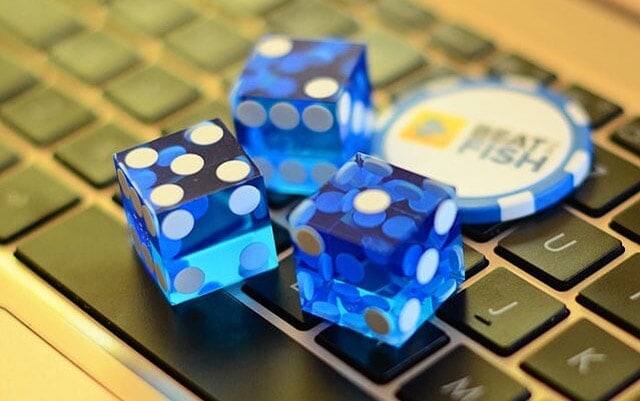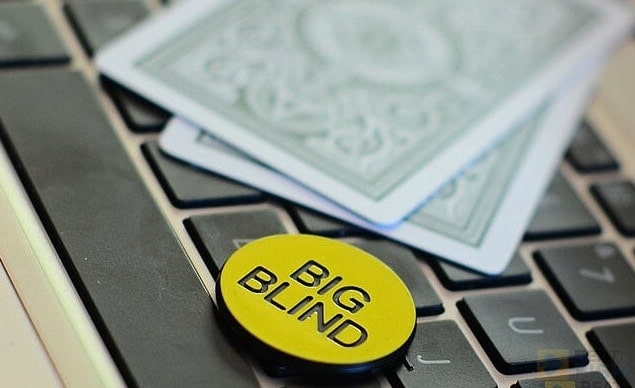
When Deep Blue defeated reigning chess world champion Garry Kasparov back in 1997, it was a huge shock. Not many people saw it coming given Kasparov’s unprecedented understanding of the game. But, it happened.
Table of Contents
After the initial shock, people have come to term with it. After all, chess is the game of perfect, complete information. Give a machine enough computing power, and no human can stand up to it. But, machines could never beat humans in a game where intuition and “feel” play such an important role?
Or, could they?
Libratus surprises heads up specialists
A few weeks ago, we’ve announced the upcoming poker match featuring the newly-developed poker AI called Libratus. Libratus would take on four No Limit Hold’em specialists to try and beat them in their own game.
Two years ago, we saw a similar match, featuring the bot called Claudico, and in this match, humans claimed a decisive victory (although scientists claimed a “statistical tie”). Going into the new match, not many people (yours truly included) believed things would be any different this time around.
And then Libratus shocked us all, delivering a crushing defeat to his human opponents!
$1.76 million loss
After having played 120,000 hands against Libratus, four human players have lost more than $1.7 million combined. Of course, they didn’t lose any actual money, but given the fact stakes were set at 50/100, it is safe to say the AI dominated the match.
If you are surprised, imagine what Jason Les, Dong Kim, Daniel McAulay, and Jimmy Chou must feel like. Before the start of the match, they were pretty much convinced of their victory. After all, the computer could never keep up with their intuitive strategy adjustments. Or, so they thought.
Off to a bad start
From the very first hand dealt, it was clear things were going to be much different than they were in the match against Claudico. Overall, the 2015 AI was decent, but it lacked some crucial qualities needed to win. Libratus didn’t, and that came apparent very early into the match.

Les and others thought all they needed was to adjust their play, and they’d easily overcome the AI, but they were in for an unpleasant surprise. Libratus kept adjusting as well, crunching numbers overnight, getting ready for the next day’s play.
About half way through the match, four players were already $700k+ in the hole. And things kept getting worse.
Libratus: A riddle that couldn’t be solved
Four human players did all they could to adjust their strategies and beat Libratus, but they simply couldn’t come up with a solution. Whatever they tried, the AI would quickly come up with a counter-play, and the hole kept getting deeper.
Jason Les, who played the first match against Claudico as well, explains the whole experience was somewhat demoralizing. Libratus was relentless; unlike any human opponent, it needed no breaks and it never got tired. The computer was always on its A game.
And its A game was pretty solid.
Was luck a factor?
Every time we discuss poker results, luck needs to be factored in to a some degree, depending on the sample size. However, the match against Libratus was set up in such a way as to reduce the effect of luck as much as possible.
Players were divided in pairs, so they’d get to play every hand from both sides. For example, if Player A was dealt pocket Jacks against Ace King on one side, Player B would play Ace King against pocket Jacks of Libratus. This way, skill becomes much more relevant, while luck effects are significantly reduced.
Another way to eliminate luck as much as possible was chopping all in hands based on actual equity. If all chips went into the middle before the river, the hand would end right there, without dealing any more cards. Chips were splits based on the actual equity, removing the possibility of a “suckout.”

With all these stipulations in place, Libratus ended up winning right around 14 big blinds per 100 hands ($14/hand).
Has poker been solved?
The question everybody’s asking right about now is: has No Limit Texas Hold’em been solved? Will we see armies of super-playing bots swarming online tables?
There is no denying Libratus’ victory is a huge step forward in development of artificial intelligence. The AI has proven its capable of “reasoning” on its own, analyzing the play, and coming up with solutions without any outside input. Although lacking perfect information, the computer has seemingly come up with nearly perfect solutions.

But this development will probably have a much bigger influence in areas other than poker, which was the main goal of Tuomas Sandholm and his team of researchers. Poker was merely a testing ground for developing an AI capable of acting on incomplete information.
The kind of computing power required by Libratus is not available to anyone outside the scientific community. It’s not like Russian or Chinese bot-ring leaders will bring a Libratus-like AI to online tables and crush everyone.
At least not yet.
However, a few years down the line, this is a realistic possibility, as is a poker bot playing better than most humans in 6-max and full ring games. Deep Blue also required a lot of computing power, but today we have very strong chess programs that can easily run on any half-decent PC.
So, it’s not the end of poker as we know it – but it could be interpreted as a clear sign of what online poker will look like in a few years’ time.










